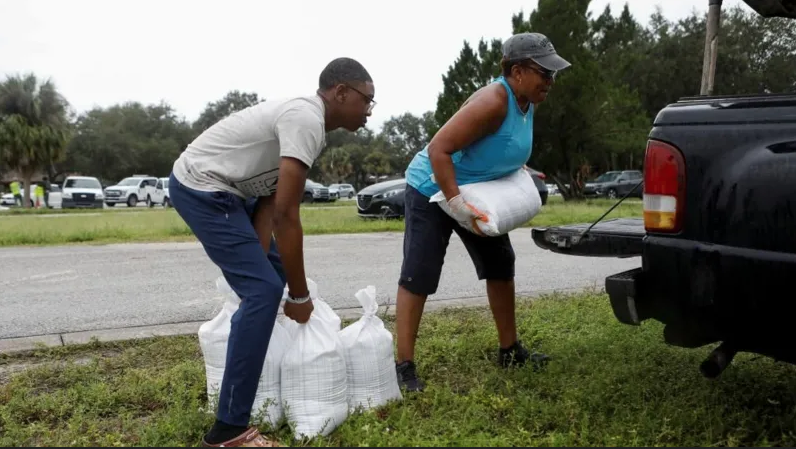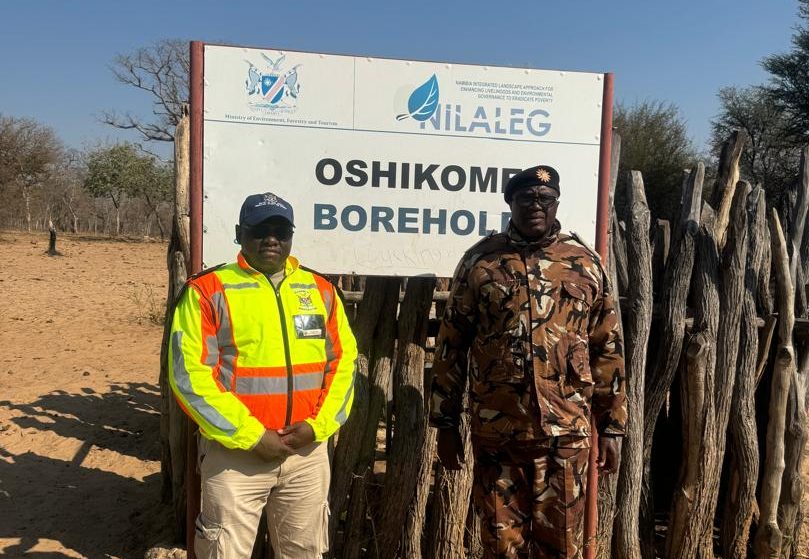Govt urged to compensate families with graves at Shark Island
Written by on May 15, 2024
Popular Democratic Movement leader McHenry Venaani says the government should compensate families with graves at Shark Island, where a green hydrogen project is planned.
He has called for a balance between the need for profit from green hydrogen projects and adequate compensation for the descendants of those killed during the 1904 genocide and buried in unmarked graves in the area.
This follows an article in The Guardian last week, which reported that the non-profit research agency, Forensic Architecture, had located sites of executions, forced labour, imprisonment and sexual violence that occurred when the island was used by the German empire as a concentration camp between 1905 and 1907.
More than 65 000 Herero and 10 000 Nama people were killed by German troops between 1904 and 1908, in what is widely acknowledged as the first genocide of the 20th century. The attack was in retaliation of a revolt against colonial rule, led by paramount chief Samuel Maharero.
Many were killed in the camp on the island, which is now a peninsula.
“We need to balance both economic interests and historical realities and the communities must be compensated for the graves if they want to move the graves that are unmarked. This is a genocide site, so they must explain what is being done to protect those areas,” Venaani told The Namibian yesterday.
McHenry Venaani
United Democratic Front member of parliament Dudu Murorua expressed concern over the expansion of the port, which will overshadow the historical importance of Shark Island.
“The island does not concern only Hereros and Namas, it is a place that needs to be written down in the annals of Namibia. It is a place of historical remembrance,” Murorua said yesterday.
“I don’t see why the Namibian Ports Authority (Namport) would go to the extent of trying to nullify the entire history of the Namibian nation.”
Political analyst Ndumba Kamwanyah said Shark Island is a sacred site which holds very important historical memories, in particular for the descendants of the genocide victims.
From this perspective, it is a cultural site and must be approached with greater sensitivity, including broader consultations with the descendants of the genocide victims, he said yesterday.
“The economic imperative should not override the cultural aspect and importance of that site. It is distasteful that such a site with historical memories and painful suffering is being touched.”
Kamwanyah said many lives were lost, thus economic activities must be done in consultation with the descendants of genocide victims.
Traditional leaders and stakeholders also expressed concern over plans to expand the port at Shark Island after the discovery of unmarked graves and artefacts relating to the genocide.
Nama Traditional Leaders Association member Sima Luipert said the expansion of the port will affect burial sites and compromise the sanctity of the site.
“Further expansion will mean further desecration and erasure of the memory of immense human suffering and exploitation,” she wrote via email yesterday.
She noted that while Namport has maintained that the port expansion will not touch the island itself, “this argument holds no logical basis because we know from historical records and oral narratives that there are most likely more human remains on the seabed around the island”.
She said noise pollution from construction will cause disturbance to the sacred site.
“The visual integrity of the island will also be compromised because the presence of industrial activity will obliterate the island from the view of the town, creating the illusion that absolutely nothing happened on the island.”
Ndumba Kamwanyah
Ovaherero Traditional Authority director Itamunua Meroro in a statement yesterday called for the preservation of the site.
“The bones of our ancestors are scattered across this island and some are buried in shallow graves, but instead of preserving such a sacred place, plans are underway for the port for business purposes. That is shameful.”
Meroro said the “ultimate intention of the port expansion is to erase the history of genocide and to change the site into a campsite where Germans and other Europeans will come back to enjoy themselves on top of the bones of our people”.
“The Ovaherero Traditional Authority totally rejects such expansion and rather calls for a memorial site with a proper museum that would put our sad history on the forefront of the events.
“We call for our government to assist the affected communities to develop Shark Island in a manner that will honour the history of that death camp. The whole of Shark Island is a graveyard.”
Ovaherero Ombara Otjitambi paramount chief Mutjinde Katjiua yesterday said the government has not paid due consideration to the genocide.
“This is evident in the lack of recognition of the genocide orders on 2 October 1904 against the Ovaherero and on 22 April 1905 against the Nama people.
“It is public knowledge that no officials of the Swapo-led government have ever visited and paid homage to mass graves or concentration camps of genocide victims. To the contrary, the Swapo-led government has chosen to declare Shark Island death camp as a holiday resort. Now, the latest development is aimed at completely erasing the evidence of the highest crime on earth against humanity.”
Katjiua believes that German proxies are working to wipe out the material evidence, the sanctity and the look and feel of the horror the victims suffered as they were worked and starved to death.
The Guardian report noted that researchers have called for a moratorium on all development projects in the area and for wider investigations into potential underwater graves.
Ovaherero Traditional Authority chief Mutjinde Katjiua
“Any prospective construction needs to be stopped until these sites are fully protected and thorough studies of the remains on the camp have been done,” said Forensic Architecture researcher Agata Nguyen Chuong.
The discoveries, published in April, have sparked renewed calls from traditional leaders for the peninsula to be designated a historic site.
The government recognised the area as a national heritage site in 2019, but communities said it made little difference to how the area was viewed. The peninsula is now a tourist site, with camping facilities and beach side resorts, as well as a busy port.
The post Govt urged to compensate families with graves at Shark Island appeared first on The Namibian.


